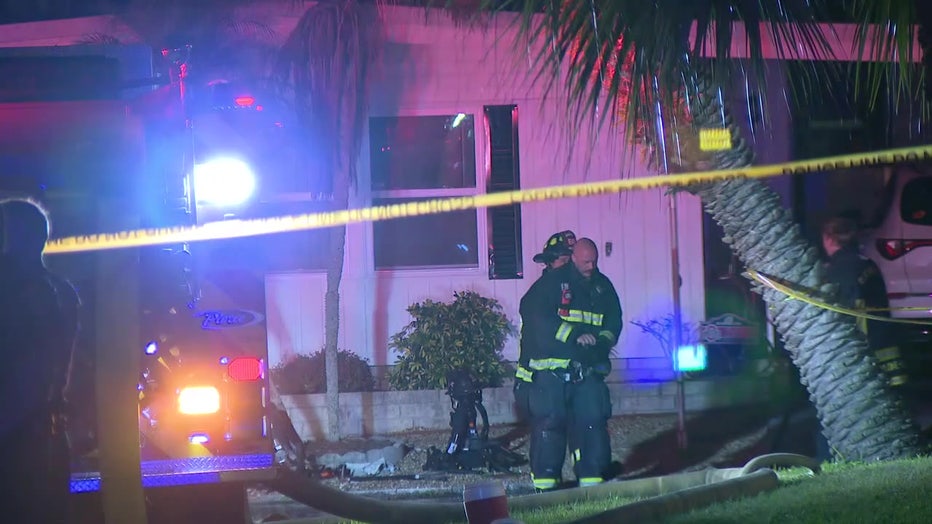Clearwater plane crash: Audio reveals pilot had engine trouble before crashing into neighborhood killing 3

Deadly plane crash audio recording released
A pilot involved in a deadly Clearwater plane crash on Thursday night reported engine trouble before slamming into a mobile home park.
CLEARWATER, Fla. - A newly released audio recording of the pilot involved in a deadly plane crash in Clearwater Thursday night and another pilot in the area is offering new clues as to what happened as crews on the ground continue to sift through the rubble.
In the audio, the pilot that crashed can be heard saying he can’t see the airport and is losing the engine moments before the plane crashed into the Bayside Waters mobile home park along U.S. 19 around 7 p.m.
In the audio, another pilot can be heard saying, "They went down hard. They're in flames."
READ: Clearwater plane crash: 3 killed when aircraft slammed into mobile home park, FAA says
They added, "Looks like there’s a structure fire. It looks like it went into a building."

Clearwater plane crash: Full news conference
Officials with the Clearwater Fire and Rescue Department gave an update on a plane crash in a mobile home park that caused multiple homes to catch on fire.
In the three-and-a-half minute recording, the pilot who witnessed the plane crash can be heard trying to pinpoint the exact location of where it went down. Initially, he said it appeared to be near McMullen Booth Road and State Road 60. The person on the audio recording said there were a lot of flames and smoke.
READ: Clearwater 16-year-old arrested for fatal shooting of teenager while 'play fighting:' Police
"He is definitely into a house, a whole house is demolished," the pilot said. "I just saw him going down at an extremely high rate of speed."
Once the pilot who crashed reported engine failure, responders on the ground began preparing for an emergency landing at Clearwater St. Pete Airport (PIE), before the plane crashed about three miles north of the runway.

As of Friday morning, officials were still digging through the wreckage.
Clearwater Fire Chief Scott Ehlers said emergency vehicles designed to handle aircraft crashes were quickly re-routed to the scene.
According to the Federal Aviation Administration, FAA, three people were killed in the crash – two people on the ground and the pilot.
The identities of the victims have not yet been released.

Clearwater plane crash: What went wrong?
Well-seasoned pilot and certified instructor, Tim Goddard, says he knows all about engine failure. He says in his 40 years of flying, he's had four close calls, and often, you don't get a warning.
Well-seasoned pilot and certified instructor, Tim Goddard, says he knows all about engine failure. He says in his 40 years of flying, he's had four close calls, and often, you don't get a warning.
"Just like driving around the road, you have a blown tire, there’s no indication that your tire is going to blow up, but sometimes a mechanical failure can occur without any indication," explained Goddard.
Goddard said in those emergency situations his training kicked in, and he had just enough altitude to glide or drag the plane to a safe landing spot.
Reports indicate that the pilot in Thursday's deadly Clearwater crash was trying to land, so his altitude was already low.
"Like I said, the hardest thing about flying is the ground," Goddard said. "Altitude is your friend. It gives you more time to solve problems further, to glide and find a safe landing spot if a failure should occur."

